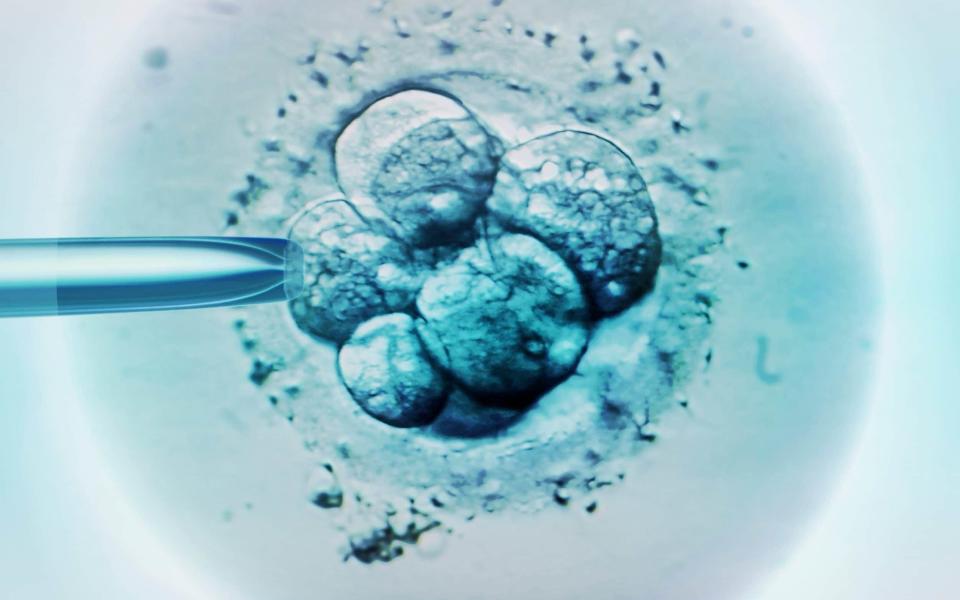British scientists call for urgent IVF regulation as US unveils technique to pick sex of child

British scientists have called for urgent regulation after US researchers unveiled a new technique that would allow parents to easily pick the sex of their child during IVF.
Currently selecting the sex of an embryo is banned in the UK for non-medical reasons, but the new process involves choosing the correct sperm which increases the odds of having a boy or a girl to around 80 per cent.
British experts warned that the technique could provide a legal loophole that would allow couples to choose the sex of their child.
Scientists at Cornell University published a study on Wednesday showing that 59 couples who wanted female offspring had produced 79 per cent female embryos, leading to the birth of 16 baby girls.
Likewise, 46 couples who wanted males had produced 75 per cent male embryos after the sperm selecting technique, leading to the birth of 13 baby boys.
Commenting on the research, Dr Channa Jayasena, Head of Andrology, at Imperial College London, said: “Their technical achievement is insignificant compared to the serious ethical concerns raised by the research.
“They propose sperm selection as an ‘ethical’ alternative to embryo selection. I find this incredible since sperm selection is just another way of selecting embryos to manipulate the sex of offspring, with detrimental societal implications.
“I am alarmed that such technology might become more widespread in clinical practice. This research therefore raises serious ethical concerns which need to be addressed urgently through regulation.”
Sperm determines the sex
Men determine the sex of a baby depending on whether their sperm is carrying an X or Y chromosome.
An X chromosome combines with the mother's X chromosome to make a baby girl (XX) while a Y chromosome will combine with the mother's to make a boy (XY).
Sex selection is currently banned in several countries including Britain, Canada and Australia for non medical reasons, such as when a child is at risk of a gender-specific inherited condition. Although the practice is not encouraged in the US, it is also not banned.
A survey last year showed that 57 per cent of the British public is opposed to sex selection and only supported by 28 per cent of people.
Darren Griffin, professor of genetics, University of Kent, said: “The issue of sex selection is an ethically fraught one.
“Selection of embryos on the basis of sex, without mitigating reasons such as sex-linked disease, is illegal.
“Separating sperm beforehand may provide a legal loophole in some countries but not the UK. Should we be selecting for sex anyway rather than letting nature take its course?”
The new research was published in the journal Plos One.

 Yahoo News
Yahoo News 